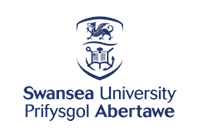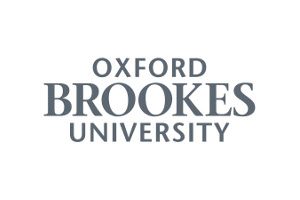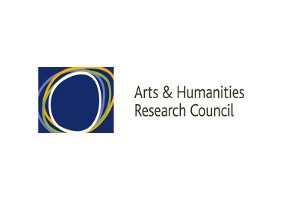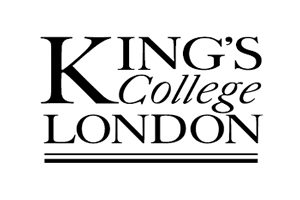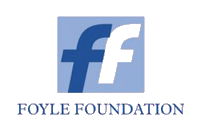The EMCO Team
Go to: About the project | Project Team | Funding and Acknowledgements
Editorial Board
Editor-in-Chief
Professor Nicole Pohl (Prof Emerita at Oxford Brookes University, Academic Editor of Electronic Enlightenment, Bodleian Libraries, University of Oxford)
Nicole Pohl works on eighteenth-century English literature with a particular interest in women’s letters and literature. She has also published and edited books on women’s utopian writing in the seventeenth and eighteenth century, European salons and epistolarity. With Betty Schellenberg, she edited Reconsidering the Bluestockings (San Marino: University of California Press 2003), published The Letters of Sarah Scott (Pickering & Chatto), and edited "The Commerce of Life": Elizabeth Montagu (1718-1800), Huntington Library Quarterly (2018).
Senior Editor
Joanna Barker (Durham University)
Joanna Barker is Senior Editor and Project Manager of Elizabeth Montagu Correspondence Online. She is an Honorary Research Fellow of the Institute of Medieval and Early Modern Studies at the University of Durham. She received the honorary degree of Doctor of Letters from Durham University in 2012, and from Oxford Brookes University in 2022. She has published In Defence of Women (Cambridge: MHRA, 2018) and The Pen and the Needle: Rousseau and the Enlightenment Debate over Women’s Education (Cambridge: MHRA, 2021.)’
General Editors
Professor Emerita Caroline Franklin (Swansea University)
Professor Franklin is Principal Investigator of EMCO. She is a graduate of the Universities of London and Cardiff, and a Fellow of the English Association. She is an expert on eighteenth and nineteenth-century literature with a particular interest in women writing. She has authored five monographs, edited or co-edited six reprint series of rare texts, co-edited an anthology of critical essays on print culture, and edited an anthology of Gothic verse. Caroline has published scholarly articles on Lord Byron, Walter Scott, Robert Southey, Mary Wollstonecraft, Madame de Staël, Jane Austen, Helen Maria Williams, Lady Morgan, Iolo Morganwg and others.
Professor Michael Franklin (Swansea University)
It is with great sadness that we have to announce the passing of Professor Michael Franklin after long illness. Mike was one of the founders of EMCO. His truly polyglot and rigorous scholarship shaped EMCO into what it is now. His vast knowledge of all things literary (he was a medievalist turned eighteenth-century scholar), his particular interest in Hester Thrale Piozzi as a Welsh woman, and his work on Orientalism in the eighteenth century fed into the project directly and indirectly, into footnotes and the critical apparatus.
But beyond the academic contribution to the project, Mike was instrumental in shaping EMCO into a collegiate, co-operative project that acknowledges everyone's contribution and hard work. His humour, and his wit, his curiosity and his enthusiasm were and will remain an essential pillar of EMCO. It emerges from all his writing, particularly the Introduction to the Piozzi Section, so we encourage you to savour his sharp-wittedness here.
We owe him so much and are honoured to have been his 'partner in crime', his friend and colleague.
Dr Emma Major (University of York, UK)
Professor Major is Senior Lecturer at the University of York. Her research interests lie in debates about gender, nation, Christianity, and class. Since the publication of her book Madam Britannia: Women, Church, and Nation 1712-1812 (Oxford UP, 2011), she has written two chapters for edited collections: an essay on Catherine Talbot, and another on religion and national identity in 1688. She has ongoing interests in debates in the 1680s and 1690s, and in Charlotte Yonge and Margaret Oliphant. She is currently working on two monographs, one on Anna Laetitia Barbauld and concepts of the public, and the other on religion, rebellion, and nation in the 1840s.
Dr Nicholas Seager (Keele University)
Nicholas Seager is Reader in English Literature and Head of the School of Humanities at Keele University. He has published The Rise of the Novel: A Reader’s Guide to Essential Criticism (2012) and (with Daniel Cook) The Afterlives of Eighteenth-Century Fiction (2015). He is the editor (with Lance Wilcox) of Samuel Johnson’s 1744 biography The Life of Mr. Richard Savage (2016). Currently he is completing The Cambridge Edition of the Correspondence of Daniel Defoe (expected 2021) and editing (with Marc Mierowsky) Defoe’s Roxana for Oxford World’s Classics. He is also editing The Oxford Handbook of Daniel Defoe (with J. A. Downie) and The Cambridge Companion to Gulliver’s Travels (with Daniel Cook).
Consultant Editor
Dr Elizabeth Eger (King’s College, London)
Dr Eger’s research belongs to the field of interdisciplinary cultural history of the long 18th century. She has a particular interest in women’s writing, poetry, visual culture and the conceptual history of ‘luxury’. Her work has included critical editions of 18th century women writers, editing and contributing to collections of interdisciplinary essays, an exhibition and a book Bluestockings: Women of Reason from Enlightenment to Romanticism (Basingstoke: Palgrave, 2010), part of the series Enlightenment and Romantic Print Cultures (eds Anne Mellor and Clifford Siskin). She recently organised a conference in collaboration with the V & A, ‘Writing Materials: women of letters from Enlightenment to Modernity’, which included talks from Andrew Piper, Christina Lupton, Peter Stallybrass, Dena Goodman and Karen Harvey.
Support Team
Technical Consultant and Developer
Alexander Roberts (Digital Humanities and Research Data Manager, Swansea University)
Alexander Roberts is the Research Data and Digital Humanities Manager at Swansea University. With a background in Ethnomusicology and a wide-ranging set of digital preservation and scholarship skills, he has acted as Consultant, Manager and Developer on scholarly digital editions, including The Poems of Guto’r Glyn, The works of Dafydd ap Gwilym.
Research Assistants
Charlotte Emily Crawshaw (Northumbria University)
Charlotte is a second year PhD student at Northumbria University in collaboration with Northumberland Record Office, funded by Northern Bridge Consortium. She is studying connections between Elizabeth Montagu, Education and the North of England through both correspondence and estate papers.
Dr Katie Crowther
Katie is a curator and researcher based in York. She has recently competed her PhD titled “Women’s Paper Traces: Material Manuscripts, Print Culture and the Eighteenth-Century Country House” in collaboration with the National Trust.
Interns
Abby Hammond (Northumbria University)
Abby is a PhD student at Northumbria University, funded by the Northern Bridge Consortium. Her project is in collaboration with Newcastle Cathedral, where she is researching the business lives of the women named in the Cathedral's collection of ledger stones. More broadly, she is interested in gender, death, and memorials in the long eighteenth century.
Constance Halstead (University of York)
Constance is a PhD student at the University of York’s Centre for Eighteenth Century Studies where she is the inaugural recipient of the Sally Wainwright Scholarship for the Study of Anne Lister. Her thesis is titled, ‘Telling “all as it really is”: form and formation in Anne Lister’s manuscript and digitised journal’. It investigates how Lister materialised her ongoing self-invention through the diary form. Constance’s broader interests include eighteenth century intellectual history, women’s classical learning, epistolary writing, and the digital humanities.
Katie Devlin
Advisory Board
Professor Ros Ballaster (Mansfield College, University of Oxford, UK)
Ros Ballaster is Professor of Eighteenth-Century Studies in the Faculty of English, Oxford University and Professorial Fellow of English at Mansfield College, Oxford. She has published widely in the field of eighteenth-century literature and has particular research interests in women’s writing, women’s studies, feminist theory, and oriental fiction. She is the editor of The History of British Women's Writing, 1690 - 1750: Volume Four (History of British Women’s Writing (2010) . And author of three monographs Seductive Forms: Women’s Amatory Fiction 1684-1740 (1992); Fabulous Orients: Fictions of the East in England 1662-1785 (2005); Fictions of Presence: Theatre and Novel in Eighteenth-Century Britain (2020). She is a member of the Steering Committee of the Anne Lister Society.
Professor Clare Brant (King’s College London, UK)
Clare Brant’s research explores a wide range of subjects in the long eighteenth century and contemporary culture through most forms of literature, the history of ideas and human lives. She co-directs the Centre for Life-Writing Research at King’s, and co-edits the Palgrave series, Studies in Life Writing, https://www.palgrave.com/us/series/15200. She is also an editor on the European Journal of Life Writing, ejlw.eu, director of Strandlines: Lives on the Strand past, present and creative, as well as being a member of the ERC-funded Ego Media group, researching digital forms of life writing,. She also has a long-standing interest in letter writing: Eighteenth-Century Letters and British Culture (Palgrave 2006; paperback 2010) won the ESSE Book Award for 2008, and Professor Brant has been publishing on Lady Mary Wortley Montagu, for instance in Intimacy and Celebrity in Eighteenth-Century Literary Culture eds Emrys Jones and Victoria Joule (Palgrave 2017), and Handbook Autobiography/Autofiction, ed. Martina Wagner-Engelhaaf (de Gruyter 2018).
Professor Nicholas Cronk (Voltaire Foundation, University of Oxford)
Nicholas Cronk is Professor of European Enlightenment Studies and Director of the Voltaire Foundation at the University of Oxford. He is also General Editor of the Œuvres completes de Voltaire / Complete works of Voltaire (203 vols, 1968-2021), and with Glenn Roe, co-director of the Voltaire Lab at the Voltaire Foundation. He was Principal Investigator of Electronic Enlightenment (2000-2009), and recent appointments include a fellowship at the Institute in Digital Textual Studies, National Humanities Center, NC (2015-2016). He has written widely on Voltaire, including Voltaire: A Very Short Introduction (OUP, 2017), and has a particular interest in Voltaire’s correspondence. He has published an anthology of the letters (Voltaire, Choix de lettres, Gallimard, 2017), and with Glenn Roe has co-authored Voltaire’s Correspondence: Digital Readings (CUP, 2020).
Professor Suzan van Dijk (Huygens Institute, Netherlands)
Suzan van Dijk is a senior researcher at Huygens Institute for the History of the Netherlands (Amsterdam). She studied French and comparative literature at universities of Utrecht and Paris-IV. Since her thesis, Traces de femmes: présence féminine dans le journalisme français du XVIIIe siècle (1988), she continued her research in 18th- and 19th-century women’s writing and its (trans)national reception. She is published widely in this field, and took the initiative, some 20 years ago, for creating a network of colleagues from numerous countries, centring on the online database New approaches to European Women’s Writing . This was successively financed by NWO, COST, CLARIN, HERA, and is now a DARIAH Working Group entitled Women Writers in History (c. 90 members). For several years she has also been preparing an online edition of the correspondence of Dutch-Swiss author Isabelle de Charrière: The first part of which was launched October 2019 and the remaining letters (2400) are due to be published in 2021.
Professor Judith Hawley (Royal Holloway, University of London, UK)
Judith Hawley, FSA, is Professor of Eighteenth-Century Literature at Royal Holloway, University of London. She has published on a number of eighteenth-century women writers, including Charlotte Smith and Mary Robinson. As well as editing Jane Collier’s Art of Ingeniously Tormenting(Routledge/Thoemmes, 1994), she edited the Elizabeth Carter volume in Bluestocking Feminism: Writings of the Bluestocking Circle, 1738-1790 (Pickering and Chatto, 1999). In addition to scholarly and critical work on a range of eighteenth-century topics from gin to encyclopaedias and occasional forays into radio and TV, she promotes popular interest in heritage through the London Luminaries https://londonluminaries.com/.
Professor Felicity Nussbaum (University of California, Los Angeles, USA)
Felicity A. Nussbaum, Distinguished Research Professor at the University of California, Los Angeles, is the author most recently of Rival Queens: Actresses, Performance, and the Eighteenth-Century British Theatre (U Penn Press). Among her other books are The Arabian Nights in Historical Context(Oxford UP) with Saree Makdisi; The Limits of the Human: Fictions of Anomaly, Race, and Gender (Cambridge UP); The Autobiographical Subject: Gender and Ideology in Eighteenth-Century England (John Hopkins UP), awarded the Gottschalk Prize; and Torrid Zones: Maternity, Sexuality and Empire(Johns Hopkins UP). Her essays on eighteenth-century drama have appeared recently in PMLA,The Oxford Handbook of the Georgian Theatre, and Charles Dibdin and Late Georgian Culture. A former president of the American Society for Eighteenth-Century Studies, she is pursuing projects on entertainments that deal with slavery and the Orient, and has recently completed a play about Hester Thrale Piozzi entitled ‘Witty Woman’.
Professor Lynda Pratt (University of Nottingham, UK)
Lynda Pratt is currently Associate Pro-Vice-Chancellor for Research and Knowledge Exchange (Faculty of Arts). She is a member of the AHRC Strategic College, a Fellow of the English Association (2012- ), and an editorial board member of the journals Romanticism and Essays in Romanticism. She is general editor of The Collected Letters of Robert Southey (2009- ), published by Romantic Circles and of Southey’s Poetical Works (9 vols, Pickering and Chatto, 2004, 2012).
Professor Peter Sabor (McGill University, Canada)
Peter Sabor is currently Canada Research Chair in Eighteenth Century Studies and Director of the Burney Centre. His research focuses on Restoration and Eighteenth-Century Literature, particularly the history of the novel. His wide ranging bibliography encompasses both editorial and critical work on Horace Walpole, John Cleland, Sarah Fielding, Jane Austen, and the eighteenth-century reception of Shakespeare, as well as Fanny Burney and Samuel Richardson, the subjects of his most recent books, Samuel Richardson in Context, ed. with Betty A. Schellenberg (Cambridge University Press, 2017), & The Additional Journals and Letters of Frances Burney (Volume II – 179101840), ed. (Oxford University Press, 2018). Professor Sabor is currently general editor of a six-volume edition of the Court Journals of Frances Burney & general editor of a five-volume edition of the Letters of Dr Charles Burney, as well as being co-general editor of a twenty-four volume edition of the Works and Correspondence of Samuel Richardson.
Professor Betty Schellenberg (Simon Fraser University, Canada)
Betty A. Schellenberg is a Distinguished University Professor of English at Simon Fraser University, with special interests in authorship, the Bluestocking movement, interfaces between the print trade and scribal networks, and eighteenth-century correspondence. Her publications include How and Why to Do Things with Eighteenth-Century Manuscripts (co-authored with Michelle Levy, 2021), Literary Coteries and the Making of Modern Print Culture (2016), The Professionalization of Women Writers in Eighteenth-Century Britain (2005), and Reconsidering the Bluestockings, co-edited with Nicole Pohl (2003). Her current project is the first study of the eighteenth-century manuscript poetry miscellany. Like Elizabeth Carter, she loves long-distance walking, although Samuel Johnson would not have complimented her on her talents at sewing shirts and making puddings. As well as sitting on our Advisory Board, Professor Schellenberg is a co-editor of the letters from Montagu to the Duchess of Portland.
Section Editors
Dr Elizabeth S. Bennett (Private scholar)
Elizabeth Bennett is an independent historian specializing in eighteenth-century Britain. Her research interests include women and gender, marriage, and political culture. Dr. Bennett’s work on Elizabeth Montagu’s male friendships and her engagement in the political sphere is published in “Elizabeth Montagu” in Nineteenth-Century Literature Criticism, vol. 340, ed. Lawrence Trudeau (Gale, Cengage, 2017) and in “‘The Commerce of Life’: Elizabeth Montagu (1718–1800),” ed. Nicole Pohl, special issue, Huntington Library Quarterly 81, no.4 (Winter 2018). She is based in Dallas, TX where she teaches history and eighteenth-century studies at The Hockaday School, a college preparatory institution for girls founded in 1913.
Dr Melanie Bigold (Cardiff University)
Melanie Bigold is a literary historian whose work encompasses the fields of book history and women’s literary history during the seventeenth and eighteenth centuries. Her primary focus has always been on revisiting the manuscript and material cultural heritage of the period, and this has involved extensive research on epistolary culture. Her book, Women of Letters, Manuscript Circulation, and Print Afterlives in the Eighteenth Century (2013) features chapters on EMCO correspondent Elizabeth Carter, as well as other bluestocking figures. Her current project is the first book-length history of women’s libraries in the seventeenth and eighteenth century.
Dr Mary Chadwick (University of Huddersfield)
Dr Mary Chadwick is a Research Fellow at the University of Huddersfield, working on the Leverhulme project “Autobiographical Acts in Seventeenth-Century England, Scotland, Wales and New England”. Her research interests and publications centre on neglected manuscript sources, from seventeenth-century Chancery court depositions to eighteenth-century scribal poetry.
Dr Michael Cousins
Michael Cousins is a garden historian with a special interest in garden buildings and features of the eighteenth century, currently undertaking a PhD related to this field (Institute of Historical Research, School of Advanced Study at the University of London), having taken early retirement. He has reassessed our understanding of several important sites including Shugborough, and Ditchley Park, which together with his foundation monograph on Hagley Park, have appeared in Garden History. He has contributed a chapter in the recent publication Fonthill Recovered and has written extensively for other journals on extant and lost features; as well as lecturing at home and abroad on contemporary parks, Chinese buildings, grottoes, and pattern-books. His interest in Elizabeth Montagu stems from the exchange of correspondence with George, Lord Lyttelton, of Hagley.
Professor Markman Ellis (Queen Mary, University of London, UK)
Markman Ellis is Professor of Eighteenth-Century Studies in the English Department at Queen Mary University of London. He studied for a BA and MA in English at the University of Auckland, and a PhD at the University of Cambridge. Since 1992 he has taught in the English Department at Queen Mary University of London. His research concerns eighteenth-century literature and culture. His first book was The Politics of Sensibility: Race, Gender and Commerce in the Sentimental Novel (Cambridge University Press, 1996), which explored sensibility and political controversy in eighteenth-century novels. His subsequent monograph publications are: The History of Gothic Fiction (Edinburgh University Press, 2000), on historicism in the gothic novel; The Coffee-House: a Cultural History (Weidenfeld & Nicolson, 2004), which focussed on the representation of the coffee-house in the period 1650-1750; and Empire of Tea, co-written with Richard Coulton and Matthew Mauger (Reaktion, 2015). His publications on Elizabeth Montagu include ‘Reading practices in Elizabeth Montagu’s epistolary network of the 1750s’, in Elizabeth Eger’s Bluestockings Displayed (2013) and ‘“An Author in Form”: Women Writers, Print Publication, and Elizabeth Montagu’s Dialogues of the Dead’, in ELH (2012).
Dr Anna Senkiw (University of Oxford)
Anna researches the development of celebrity culture and the rise of the periodical press during the long eighteenth-century. She is interested in the circulation of gossip and news through periodicals and private correspondence, as well as the treatment of celebrity culture in novels and on the stage. She is currently editing Montagu's letters to David and Eva Garrick.
Alice Wickenden
Dr Kathleen Keown
Kathleen Keown has recently completed her doctorate in English Literature at the University of Oxford, where she was funded by a Wolfson Postgraduate Scholarship in the Humanities. Currently, she is preparing her first monograph for publication, entitledSociable Productions: Women's Poetry and the Print Marketplace, 1700-1760. Her work focuses on eighteenth-century women's writing, particularly poetry, but she has wider research and teaching interests in eighteenth-century book history, literary sociability, reading practices, and the relationship between poetry and the novel. In 2018, she acted as an academic consultant for the exhibition 'The Accomplished Mrs Boscawen' at the National Trust property Hatchlands Park, working to bring Frances Boscawen's life and achievements to a wider audience.
Dr Madeleine Pelling
Madeleine Pelling is an art historian specialising in eighteenth-century Britain. She is a postdoctoral fellow at the Institute of Advanced Studies in the Humanities at the University of Edinburgh, having completed her PhD in 2018 at the University of York. She has held postdoctoral fellowships at the Paul Mellon Centre for Studies in British Art and the John Rylands Library at the University of Manchester, as well as visiting research fellowships at the Royal Archives through the Georgian Papers Programme, the British Society for Eighteenth-Century Studies/Queen Mary University London and the Lewis Walpole Library at Yale University. Her research focuses on material and visual cultures in the eighteenth century, with focus on four key sites: the collected object, the manuscript, the inscribed surface and the cinematic screen. Her work appears in Journal for Eighteenth-Century Studies, Journal 18: a journal of eighteenth-century art and culture, Early Modern Women: An Interdisciplinary Journal and Women’s History Review, and she is currently preparing a monograph, The Duchess’s Museum: Collecting, Craft and Conversation, for publication.
Dr Anni Sairio (University of Helsinki, Finland)
Anni Sairio’s research background is in language variation and change, specifically the history of English from a sociolinguistic angle. She has done a lot of research on the Late Modern English period, particularly the eighteenth century, when the English language was undergoing a strong phase of standardisation but variation still abounded. I got my PhD in 2009 on a sociolinguistic study in the correspondence of the Bluestocking network, and she has published a letter corpus of their correspondence (http://bluestocking.ling.helsinki.fi/). In 2017 she was awarded a docentship at the University of Helsinki. Her teaching experience covers skills courses (academic writing, text analysis) and BA- and MA-level options courses and she has taught courses on language and identity, sociolinguistics, variation and change in English, global and regional variation in English, and digital aspects of English.
Dr. Nataliia Voloshkova (Kazimierz Wielki University)
Dr. Nataliia Voloshkova is associate professor at Kazimierz Wielki University in Bydgoszcz, Poland. She is a Visiting Researcher in the Faculty of Humanities and Social Sciences, Oxford Brookes University (2022-2024). Nataliia Voloshkova is the author of Bluestockings and Travel Accounts: Reading, Writing and Collecting (CUP, 2021) and a number of publications about Mary Hamilton’s life and activities. Her recent article ‘Letters, Poems, Flowers, and Bluestocking Friendship; Mary Hamilton’s Collage-Biography of Mary Delany’ was published in The Review of English Studies in 2023. Her research interests focus on the Bluestocking network and British women’s life writing in the long eighteenth century.
Stefan Uhlig (University of California)
Stefan Uhlig is Associate Professor of Comparative Literature at the University of California, Davis. He received his BA, MA, and PhD from the University of Cambridge, where he was a Fellow of King’s College for more than a decade before starting at Davis in 2014. He has co-edited Aesthetics and the Work of Art: Adorno, Kafka, Richter (2009), Wordsworth’s Poetic Theory: Knowledge, Language, Experience (2010), Goethe, Worlds, and Literature (2018), and Persuasion after Rhetoric in the Eighteenth-Century and Romanticism (Oxford University Press, 2024). His first book Rhetoric, Poetics, and Literary Historiography: The Formation of a Discipline at the Turn of the Nineteenth Century was published by the University of Pennsylvania Press in 2024.
Angela Wachowich (University of Chicago)
Angela Wachowich is a PhD student in English Language and Literature at the University of Chicago. Her research focuses on eighteenth-century and Romantic Britain’s print and manuscript cultures, especially upon the life writing and archival practices of the age. In addition to co-editing “Letters of Elizabeth Montagu to the Duchess of Portland 1741-1742,” Angela served as the Lead Editor of Betty Schellenberg’s Manuscript Verse Miscellanies, 1700–1820. She currently works as a Rare Books Assistant at The Hanna Holborn Gray Special Collections Research Center at the University of Chicago Library.
Linara Kolosov (Simon Fraser University)
Linara Kolosov is a PhD student in English Department at Simon Fraser University. In her SSHRC-funded project she researches correspondence of long-eighteenth-century literary authors. Her research interests expand to media cultures, history of authorship, and archival and editorial work. As a member of EMCO editorial team she is both gaining a deeper understanding of how letters were written and edited in the period and a valuable insight into the creation of a contemporary digital edition of eighteenth-century correspondence.
Please note that all dates and location information are provisional, initially taken from the library and archive catalogues. As our section editors continue to work through the material we will update our database and the changes will be reflected across the edition.
Browser support: The website works best using the Chrome, Edge, and Firefox browsers on the PC, and only Chrome and Firefox on the Mac.
